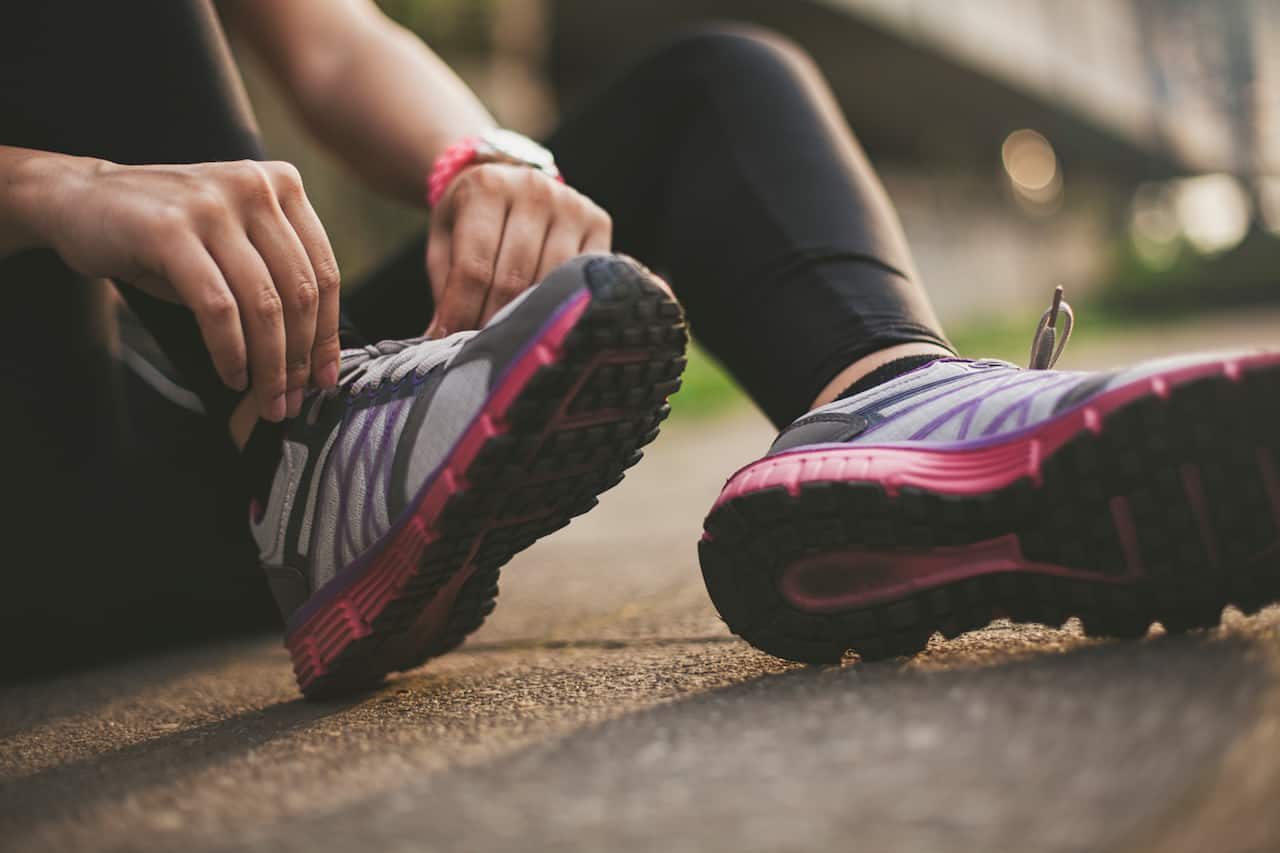Are You Wearing the Right Shoes for Your Workout?

In 2015, sneakers are the new fashion shoe. There are so many different kinds of shoes on the market it seems impossible to distinguish between what’s cool and what will actually support you through your workout. With all the neon colors and fun styles, it can be easy to get distracted from the fact that what you wear to workout servers a purpose — to support your body and prevent you from getting injured.
This article is here to give you an introduction into the world of athletic shoes. If you’re ready to take your physical activity seriously, you know how important shoes are. It’s not the smartest idea to just pick up a pretty pair of sneakers at your local sports store. Your feet are the base of every exercise you do, even if you’re not using your legs for the exercise. Shock is absorbed straight up through your feet, up your legs, and through your spine – so you want to keep them well protected. Physically, shoes keep you supported and injury-free. Mentally, they’ll reduce pain and hey – a little neon can be a great confidence-booster.
Strength Training
Strength training uses various forms of resistance to contract muscles. The resistance can be created through bodyweight exercises, or additional weights, to target specific muscles. Strength training is used in nearly every sport, because it strengthens both muscle and bone, making for an overall stronger and more capable athlete.
The key to strength training or lifting shoes lies in the heel. Lifting shoes should be non-compressible, meaning they shouldn’t have any cushion. They should be supportive, but have little to no heel. You can maintain the most traction and stability with a flat shoe, and it allows for more mobility with heavy lifts.
Many lifters, no matter their level, recommend the classic Chuck Taylor Converse sneakers. They are sturdy shoes that can lace tightly to your foot, and best of all, they’re cheap! They run about $50 a pair and should last for years.
If you’re just getting into weightlifting, you may want to start with a shoe that has a bit more support to avoid injury. Nike Frees are lightweight with just enough cushion to get you started.
Running
When it comes to running, there is no “best” shoe. Because everyone has a different foot and running style, the best shoe you can get is one that is fitted specifically for you. Head to a specialty running store where they can watch you run determine which fit is best.
Don’t worry about styles or trends – a pretty-looking shoe isn’t going to help you run faster. Feel out which shoe gives you the best support for your chosen path – treadmill, road running, or trail running. Most shoes are expensive, running from $100-150 per pair, but they’re guaranteed to last for 200-400 miles, and are much cheaper than visiting a doctor for running-related injuries.
Asics offers a wide range of shoes worthy of any level of sport. Their gel-based shoes offer comfort and support while keeping it light on the trail. Brooks is another popular brand that even features a “Shoe Advisor” guide on their site to help you find the right shoe.
Cross-Training
Cross-trainers are built for versatility. From your kettlebell class to walking on the treadmill, these shoes are meant to be supportive and durable. They range from lightweight to sturdy, depending on your chosen activities and support preferences.
If you find your feet get sweaty, these Adidas sneakers should do the trick. Their mesh style is guaranteed to keep you cool. For those who prefer more support and need balance (think jump rope, plyometrics), Puma BioWeb shoes will do the trick. And if you’re aiming for agility, these Under Armour trainers will help keep you light on your feet.
If you’re still feeling unsure about what shoe is best for you, head to a specialty or general sports store to talk it out. Explain your goals, current activity, and general shoe preferences. Soon enough, you’ll be ready to get moving!

